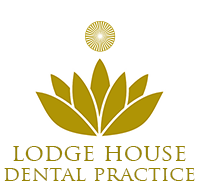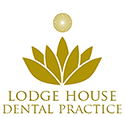PATIENT EDUCATION – DENTAL EROSION
What is dental erosion?
Erosion is the loss of tooth enamel caused by acid attack. Enamel is the hard, protective coating of the tooth, which protects the sensitive dentine underneath. When the enamel is worn away, the dentine underneath is exposed, which may lead to pain and sensitivity.
How do I know I have dental erosion?
Erosion usually shows up as hollows in the teeth and a general wearing away of the tooth surface and biting edges. This can expose the dentine underneath, which is a darker, yellower colour than the enamel. Because the dentine is sensitive your teeth can also be more sensitive to hot, cold or sweet foods and drinks.
What causes dental erosion?
Every time you eat or drink anything acidic, the enamel on your teeth becomes softer for a short while, and loses some of its mineral content. Your saliva will slowly neutralise this acidity in your mouth and restore it to its natural balance. However, if this acid attack happens too often, the mouth does not have a chance to repair itself and tiny particles of enamel can be brushed away. Over time, you would start to lose the surface of your teeth.
Are there any medical problems which can cause dental erosion?
Bulimia is a condition where patients make themselves sick so that they lose weight. Because there are high levels of acid in the vomit, this can cause damage to tooth enamel. Acids produced by the stomach can come up into the mouth (this is called gastro-oesophageal reflux). People suffering from Hiatus hernia and other oesophageal problems, or who drink too much alcohol, may also find they suffer from dental erosion due to vomiting.
Can my diet help prevent it?
Acidic foods and drinks such as fruit and fruit juices, particularly citric ones including lemon and orange, can be particularly harmful to teeth. Fruit juices and fruits contain natural acids, which can be just as harmful to teeth. Fizzy drinks are also a cause of enamel erosion. It is important to remember that even the diet brands are still as harmful. Even flavoured fizzy waters can have an effect if taken in large amounts, as they contain certain acids which can harm the teeth.
It is important to have acidic foods and drinks at mealtimes only?
Healthy foods such as fruit and fruit juices are not always the best options for teeth if you have too much of them. It is also recommended that you do not brush your teeth for at least one hour after eating or drinking anything acidic, so that your teeth can build up their mineral content again.
Are sports drinks safe?
Many sports drinks contain ingredients that can cause dental erosion. However, it is important for athletes to avoid dehydration, because this can lead to a dry mouth and bad breath.
What can I do to prevent dental erosion?
Limit acidic products and fizzy drinks to mealtimes to reduce the number of acid attacks on your teeth.
Drinks should be drunk quickly without holding in or ‘wishing’ around your mouth. Or use a straw to help drinks go to the back of your mouth and avoid long contact with your teeth.
Finish a meal with cheese or milk as this will help neutralise the acid.
Chew sugar-free gum after eating to help produce more saliva to help cancel out the acids which form in your mouth after eating.
Wait for at least one hour after eating or drinking anything acidic before brushing your teeth. This gives your teeth time to build up their mineral content again.
Brush your teeth twice a day with a small-headed brush with medium to soft bristles and fluoride toothpaste.
Should I use any other special products?
We recommend you use a fluoride toothpaste twice a day. In severe cases fluoride supplements such as rinses and gels may be used once a day. Your dentist or hygienist will tell you the best supplement to use.
How can it be treated?
Dental erosion does not always need to be treated. With regular check ups your dentist can prevent the problem getting any worse and the erosion going any further. In other cases it is important to protect the tooth and the dentine underneath to prevent tooth decay and sensitivity. In these cases, simply bonding a filling onto the tooth will be enough to repair it. However in more severe cases the dentist may need to fit a veneer.
How much will treatment cost?
Costs can vary, depending on the type of treatment necessary and your method of payment. It is important to discuss all the treatment options with your dentist and be sure to get a written estimate before starting treatment.

